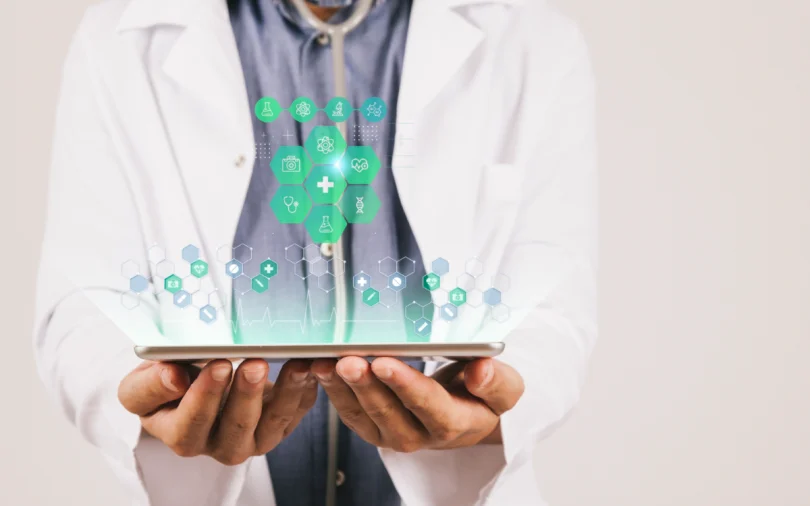Artificial Intelligence (AI) is changing the face of healthcare as we know it. From improving diagnosis accuracy to helping manage patient care, AI applications in healthcare are solving some of the industry’s biggest challenges. In this article, we will explore how AI is transforming medicine, the benefits and risks, and what the future holds for healthcare powered by smart technology.
What is AI in Healthcare?
AI in healthcare refers to the use of machine learning algorithms, natural language processing, and data analytics to simulate human intelligence. These systems help healthcare providers make better decisions, predict outcomes, and improve patient care without replacing human doctors.
Top AI Applications in Healthcare
1. Medical Imaging and Diagnostics
AI helps in detecting diseases like cancer, pneumonia, and heart conditions with high accuracy. Tools like Google Health and IBM Watson are already being used in hospitals to analyze X-rays, MRIs, and CT scans much faster than human radiologists.
2. Virtual Health Assistants
AI-powered virtual assistants like chatbots can answer patient queries, send reminders, and help schedule appointments. This reduces the burden on administrative staff and improves patient experience.
3. Predictive Analytics
AI tools analyze historical data to predict future health events. For example, they can alert doctors if a patient is at high risk of developing diabetes or heart disease.
4. Robot-Assisted Surgery
Robotic systems powered by AI can assist surgeons in performing precise and minimally invasive procedures. These surgeries often lead to faster recovery and fewer complications.
5. Drug Development
AI speeds up the drug discovery process by analyzing thousands of chemical compounds quickly. During COVID-19, AI played a key role in vaccine and treatment research.
Benefits of AI in Healthcare
- Faster Diagnosis: AI systems analyze medical data in seconds.
- Personalized Treatment Plans: AI can suggest treatments tailored to a patient’s unique genetic makeup.
- Improved Patient Monitoring: AI-powered wearable devices track vital signs and alert doctors in real time.
- Cost Reduction: Reduces time, resources, and human error.
Risks and Challenges
While AI brings many benefits, there are also challenges:
- Data Privacy: Medical records are sensitive. It’s essential to keep them secure.
- Bias in Algorithms: If not trained properly, AI tools can reflect human bias.
- Job Displacement: Some fear that AI may replace certain healthcare jobs.
- Dependence on Technology: Over-reliance on AI may reduce human oversight.
Future of AI in Medicine
As technology evolves, AI will likely become a trusted partner in healthcare. The future might include:
- AI-powered home health monitoring for seniors
- Smart prosthetics that adapt to user movement
- Real-time diagnosis through mobile apps
At BetterBulletins, we stay ahead of the curve by sharing innovative updates in technology and medicine. Explore our Health Technology section for more articles like this.
How BetterBulletins Supports Health Innovation
We aim to educate and empower readers with valuable insights into emerging technology. Whether you’re a healthcare provider, patient, or tech enthusiast, our goal is to bring you accurate and understandable content.
Want to explore more topics like this? Check out our article on “Top 10 Healthcare Trends in 2025” (link placeholder for internal linking).
Conclusion
AI applications in healthcare are revolutionizing the way care is delivered. From diagnosing complex diseases to developing new treatments, AI is making healthcare more effective, affordable, and accessible. As we move forward, it’s crucial to use these tools responsibly, keeping ethics and human oversight in mind.
Stay informed with BetterBulletins — your source for tech-driven health insights.







